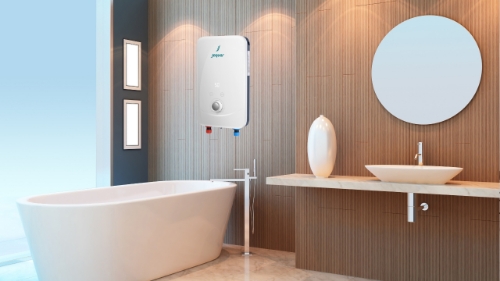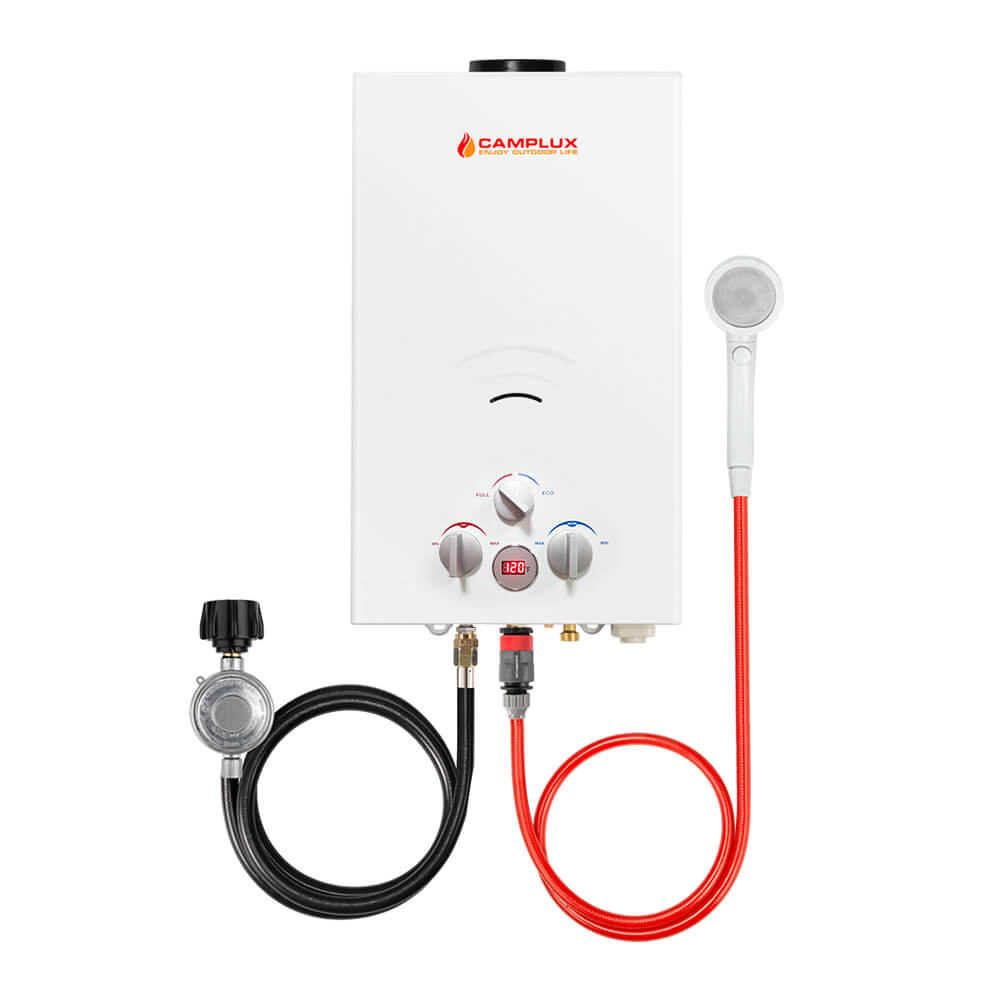Just about everyone maintains their own unique piece of advice on the subject of Why You Should Consider a Tankless Water Heater.

In a world where comfort and effectiveness preponderate, it's no surprise that house owners are constantly in search of smarter methods to manage their home's power consumption and comfort. One technology that has progressively obtained appeal is the tankless water heater. Yet what exactly makes these systems attract attention from the traditional tank-based versions most of us grew up with? Let's dive in and discover the benefits of tankless water heaters, helping you determine if it's time to make the switch in your home.
Intro
Image this: you step into the shower after a lengthy day, expecting a relaxing cascade of hot water, just to be greeted by icy beads since the last individual utilized all of it up. Sound familiar? Conventional hot water heater store a fixed quantity of warm water, meaning you go to the mercy of that container's supply. Tankless systems, on the other hand, heat water on demand. No more going out mid-shower, say goodbye to wrestling with routines just to ensure hot water is readily available.
Understanding Tankless Hot Water Heater
What Are Tankless Hot Water Heater?
Tankless water heaters, sometimes known as on-demand or instant water heaters, supply hot water only as it's required. As opposed to storing gallons of pre-heated water, these systems kick right into action the moment you activate the faucet. Water travels through a warmth exchanger, heating up in real-time, indicating you get a continuous circulation of hot water without the requirement for a huge container resting lazily by.
Exactly how Do They Differ from Typical Equipments?
Traditional heating systems hold a reservoir of hot water, making use of power to keep that storage tank at a consistent temperature. Tankless devices eliminate the standing supply, minimizing lost energy and the large impact of a large cyndrical tube. Essentially, you're updating from a "stockpile" mindset to a "made-to-order" approach.
Usual Kinds Of Tankless Devices
Tankless hot water heater usually can be found in two selections: gas and electric. Gas models have a tendency to supply greater flow prices, ideal for larger households, while electrical models often offer smaller homes and are commonly easier to set up. In addition, some systems are made for point-of-use (serving one fixture) while others can handle the entire home's hot water demands.
Key Advantages of Tankless Hot Water Heater
Energy Effectiveness and Expense Financial Savings
No more heating a giant storage tank's well worth of water and maintaining it cozy all day. Tankless heaters decrease standby energy losses, which can lower utility bills. While the first cost may be greater, the long-lasting financial savings usually warrant the investment.
3. Space-Saving Layout
If your home is short on storage, removing the large storage tank frees up valuable room. Tankless devices are small and can commonly be installed on walls, stashed in edges, or installed in tight energy storage rooms without monopolizing the whole space.
4. Longer Lifespan
A well-maintained tankless hot water heater can outlast its tank-based relative. Traditional storage tanks may last 10-15 years, while tankless designs can keep chugging along for 20 years or more, making them a strong investment in time.
1. Countless Warm Water Supply
Ever had to arrange showers so everyone obtains their reasonable share of hot water? With tankless, that comes to be a thing of the past. As long as the heating unit's circulation ability isn't exceeded, you can take back-to-back showers without turning into a popsicle.
5. Improved Water High Quality
Keeping water in a storage tank can sometimes bring about debris build-up or a somewhat "off" taste. With tankless systems, fresh water is heated instantly, lowering the chances of sediment buildup and potentially providing cleaner-tasting water.
Factors to consider Prior To Switching
Though the benefits are compelling, it's important to take into consideration a couple of aspects prior to completely devoting.
Examining Your Home's Water Usage Patterns
If your family at the same time uses numerous fixtures with high warm water need, see to it the system's flow rate meets your demands. Knowing your usage patterns assists you pick the appropriate dimension and sort of tankless heater.
Maintenance and Care Tips
Tankless systems are fairly low maintenance, but they aren't set-it-and-forget-it devices.
Normal Cleaning and Descaling
Tough water minerals can build up in the heat exchanger, impacting performance. Normal descaling (commonly suggested every year) maintains the device going for peak performance.
Yearly Specialist Evaluations
A yearly checkup from an expert makes certain minor issues are caught early. They'll evaluate the system's efficiency, seek leakages, and help preserve optimal effectiveness.
Preliminary Investment Costs
Tankless heaters typically include a greater upfront price. In between the unit itself and possible setup alterations, the first price may provide you sticker shock. Yet remember to view it as a long-lasting financial investment.
Installation Demands
Relying on your home's infrastructure, you may require extra electric capability or gas line upgrades. Ensure you understand the setup requirements and seek advice from a professional to prevent surprises.
Ensuring Proper Ventilation
For gas versions, appropriate air flow is essential to securely remove exhaust gases. See to it airing vent systems are tidy and properly set up to stop any type of possible security hazards.
Comparing Different Brands and Versions
Not all tankless water heaters are created equal.
Investigating Trusted Manufacturers
Look for trustworthy brand names with a history of creating top quality devices. A dependable supplier usually provides better consumer support and longer service warranties.
Installation: Do It Yourself or Professional?
While some homeowners delight in tackling jobs themselves, tankless setup might not be the best time to break out the tool kit.
Benefits and drawbacks of DIY Setup
A do it yourself set up might conserve cash, yet it comes with dangers. Wrong setup can lead to inefficiency or safety and security problems. If you come in handy and have experience, it may be practical-- yet proceed with caution.
Reading Reviews and Customer Feedback
User evaluations and feedback from neighbors or pals who have gone tankless can provide valuable insights. Occasionally, real-life experiences can be more telling than advertising brochures.
When to Call a Specialist Plumber
For a lot of, calling a professional makes sure everything's done correctly. An expert plumbing understands neighborhood codes, sizing requirements, and airing vent criteria, reducing the danger of problems.
Making the most of Performance
You've bought a tankless unit-- now maximize its performance.
Ideal Temperature Setups
Most people set their units between 120-140 F. Adjusting the temperature can enhance convenience and savings. Experiment to locate a wonderful area that doesn't squander power.
Coupling With Low-Flow Fixtures
Wish to extend your system's capacities? Consider setting up low-flow showerheads and faucets. They decrease water use, enabling your tankless system to supply a constant stream of hot water without stressing.
Environmental Influence
Tankless hot water heater align with greener living objectives.
Minimized Carbon Footprint
By using less power and just home heating water as needed, tankless systems can decrease your home's carbon footprint, lowering your ecological impact.
Saving Natural Resources
Much less energy intake and much less lost hot water equate into fewer natural deposits being made use of, an environmental win-win.
Who Profits Most from Tankless Heating units?
The charm of tankless heating units is that they can suit a variety of houses.
Big Family Members vs. Single Owners
Huge family members may enjoy the endless warm water supply, while single owners appreciate the power savings from not heating an entire container for simply a single person's early morning shower.
Home Owners with Limited Area
If your home is short on square footage, losing the large tank maximizes area for various other essentials-- or maybe just a lot more breathing space.
Eco-Conscious Customers
Going tankless aligns with eco-friendly values, guaranteeing you're not throwing away power or sources.
Future Trends in Tankless Water Heaters
The world of home devices is ever-evolving, and tankless water heaters are no exemption.
Innovations in Technology
R&D is constantly enhancing warm exchangers, making units extra efficient and long lasting. Future designs might be even quieter, more portable, and much better fit for varying environments.
Smart Home Integration
Picture readjusting your hot water heater's temperature by means of an application or getting upkeep informs on your phone. As smart home tech developments, we'll see even more connection and comfort.
Final thought
Choosing a tankless hot water heater is more than just updating your home's hot water system; it's purchasing lasting convenience, power performance, and a greener way of living. By considering your home's water use, bearing in mind installation demands, and devoting to regular maintenance, you can delight in a stable stream of warm water without the luggage of a bulky tank. As modern technology evolves, you can expect even smarter, more effective tankless options that not only make your life simpler yet likewise benefit the earth.
Why You Should Consider a Tankless Water Heater for Your Home
Energy Efficiency and Cost Savings
Tankless water heaters, also known as on-demand water heaters, heat water only when needed. This means they don't waste energy keeping a tank of water hot constantly. This efficiency translates into substantial cost savings on your monthly energy bills.
Endless Hot Water Supply
One of the significant advantages of tankless water heaters is their ability to provide a continuous supply of hot water. Traditional tank water heaters have a limited capacity and can run out of hot water, especially during peak usage times. In contrast, tankless water heaters can provide an endless stream of hot water, making them ideal for larger families or homes with high water usage.
Space-Saving Design
Tankless water heaters are compact and take up significantly less space compared to traditional tank heaters. They can be installed on walls, under cabinets, or even outside, freeing up valuable space in your home. This makes tankless water heaters a great option for smaller homes or properties with limited space for a traditional water heater.
Longer Lifespan and Lower Maintenance
Tankless water heaters typically have a longer lifespan compared to traditional tank heaters. They can last up to 20 years or more with proper maintenance. Additionally, tankless systems are designed with replaceable parts, which can extend their lifespan further and reduce long-term maintenance costs.
Environmentally Friendly
Reducing energy consumption not only saves you money but also benefits the environment. Tankless water heaters contribute to a smaller carbon footprint by using less energy to heat water. Their energy efficiency and ability to minimize standby heat loss make them an eco-friendly choice for environmentally conscious homeowners.
Customized Temperature Control
Tankless water heaters offer precise temperature control, allowing you to set the desired temperature to meet your specific needs. This level of customization ensures you always have water at the perfect temperature for your comfort and usage requirements.
https://beantownservices.com/blog/consider-tankless-water-heater-for-your-home

I discovered that review on 5 Benefits of Tankless Water Heaters while exploring the internet. Loved our piece of writing? Please share it. Let other people locate it. Many thanks for your time. Come back soon.
Book Now!